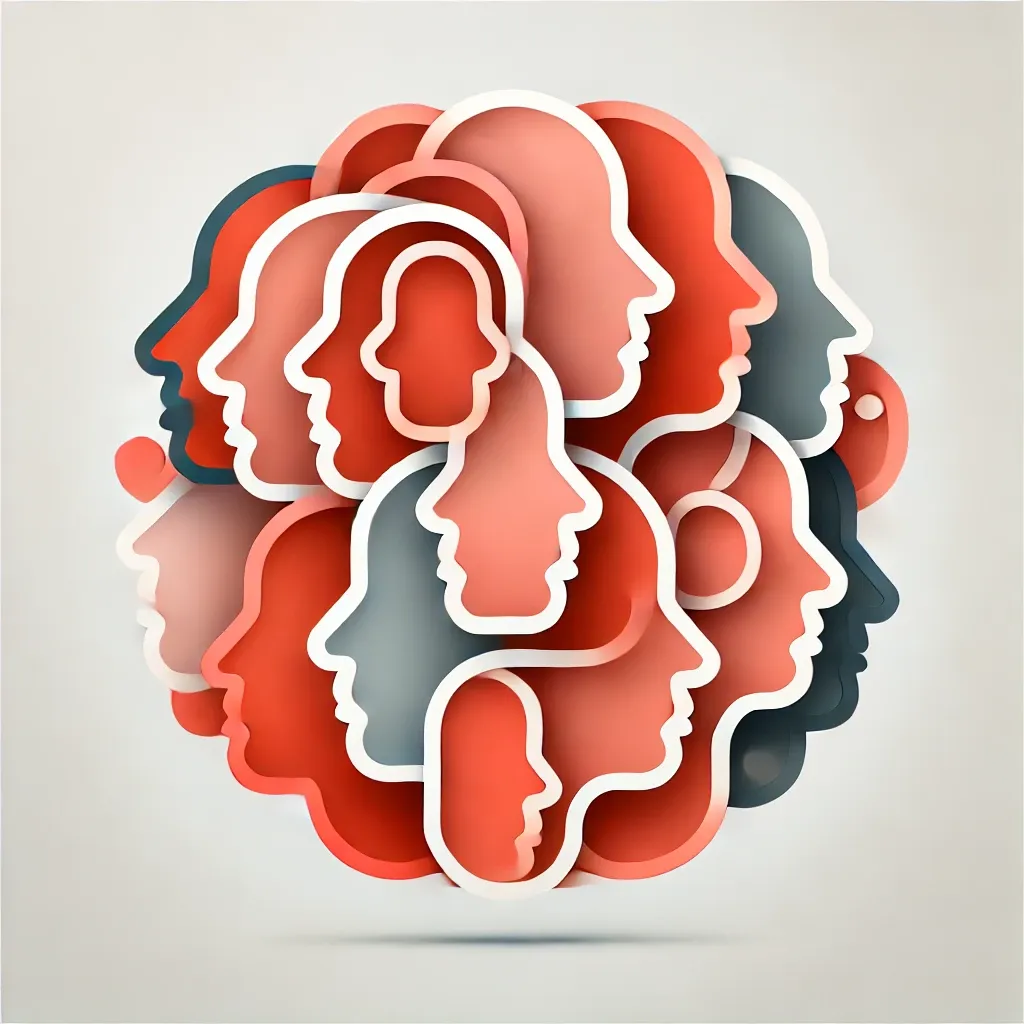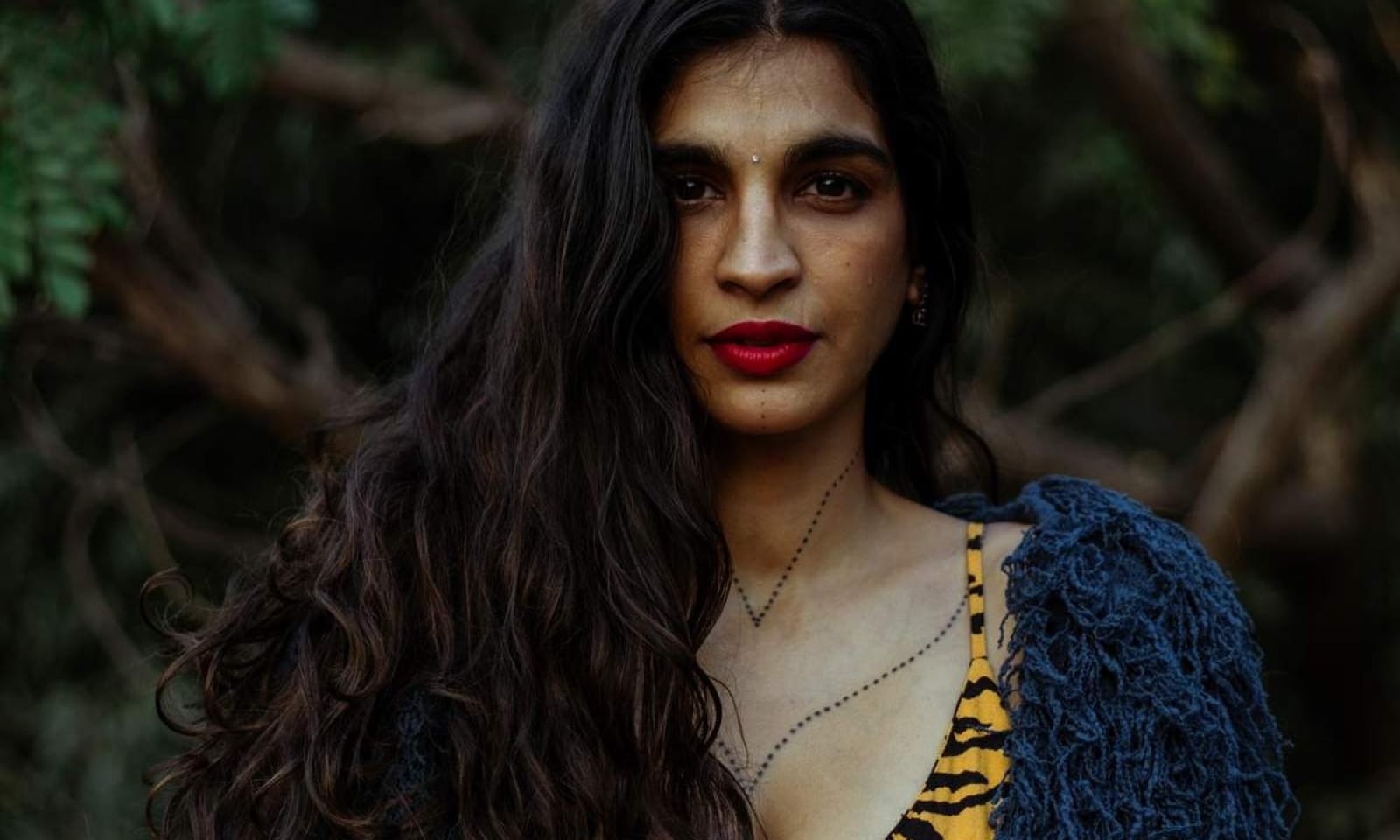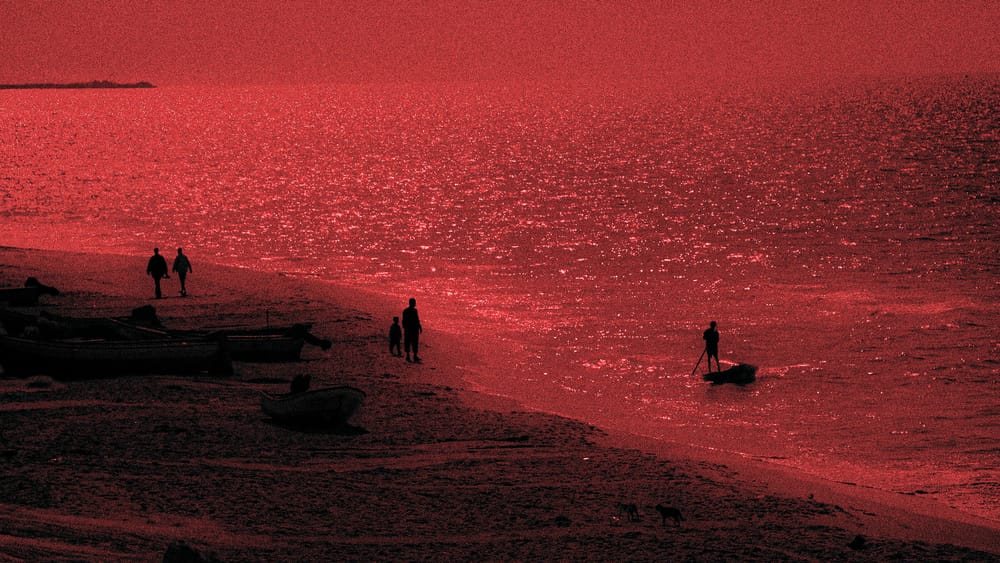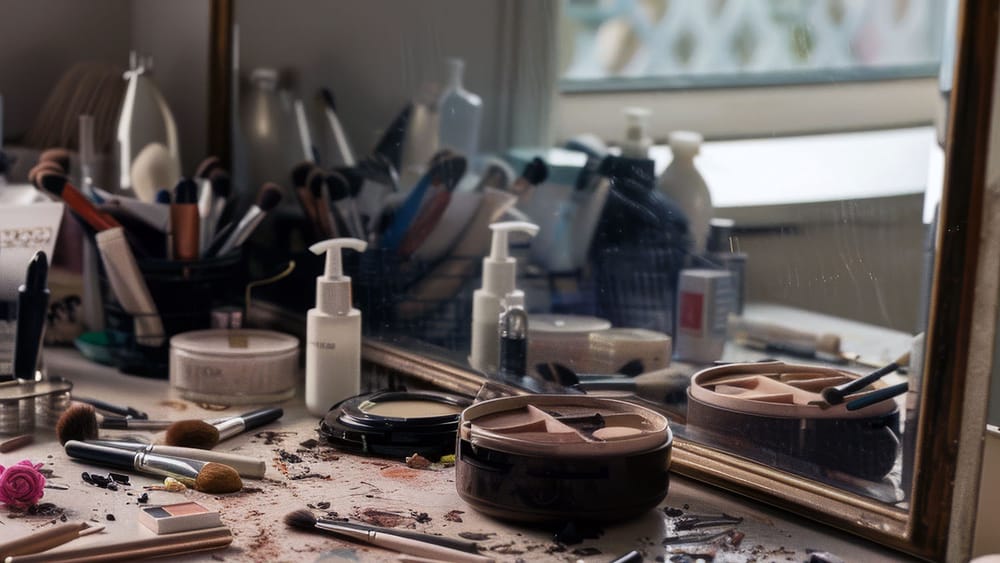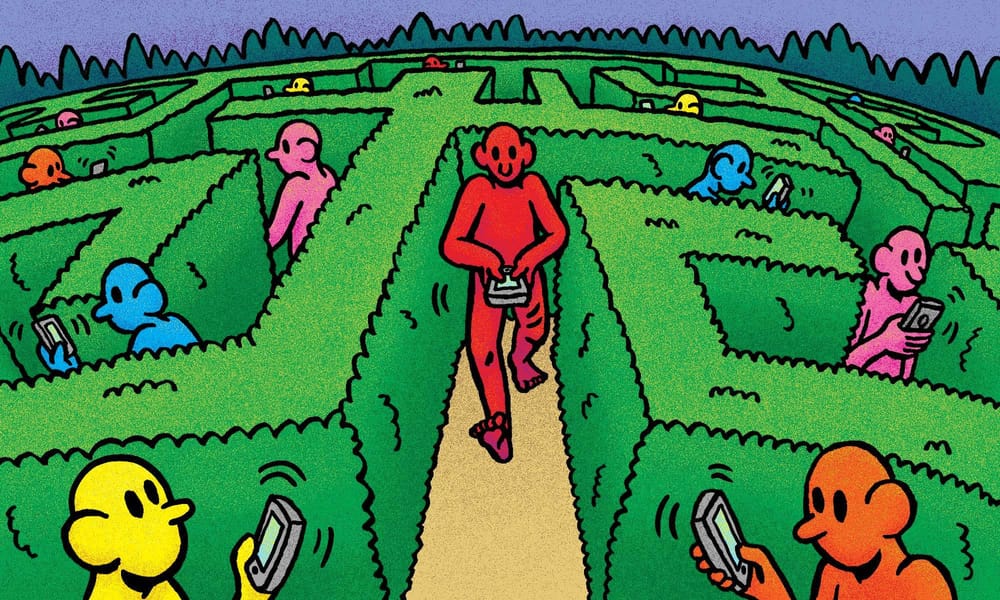In the face of the many seemingly unsolvable problems of the world, it takes courage, faith and determination to take on the role of a superhero. Colours of a Changemaker is a series of interviews with Black, Indigenous and People of Colour from around the world who are using their vocation to create social and environmental change. As Gandhi once said, we must be the change we want to see in the world, and these changemakers are doing just that through their art, music, written works, social platforms and much more.
Anushka Manchanda is an Indian music producer, singer-songwriter, performer, composer and director as well as the music head of the indie label IncInk Records. Since being launched to fame in 2002 after winning a reality television contest, she went on to have a successful career as a live performer, recording artist and playback singer for Indian cinema, which spanned almost two decades. Today, under her artist name NUKA, she uses music as a medium to engage in spirituality, connect with nature and help others find fulfilment in life.
How did you get into music? What made you pursue it as a serious career?
I grew up listening to Jimi Hendrix, Deep Purple, Santana because that’s the music that my parents listened to. My mother was an air hostess and my father was in the Merchant Navy, so they would travel all over the world and collect the most amazing music and that’s what I grew up listening to. My mom saved up money and when I was four years old, she bought me a second-hand piano and that’s really where my journey with music started. I never thought that music would be a professional choice. It was just part of my life as I was growing up. I was playing a little bit of piano, I was playing some guitar; I started playing some drums in school, but I was never really serious about music. It was just, you know, just part of who I was. I actually wanted to study advertising and I was taking classes because I wanted to get my SATs and go to Cornell or NYU—these were my two universities of choice—and when I was 17 and in the final year of school, there was a contest announcement on television and they said that they were looking for an all-girl band. I saw it as an opportunity to get out of studying and I asked my parents if I could go do it.
I had recently had this accident—that’s why I have this scar—and you know it was on my face and so obviously I was a little bit upset about it at the time. I was like, “Oh my god, this is so inconvenient.” But it was a pretty serious accident and I think that when I asked my parents to let me go to this contest, they did because—and in the middle of these big examinations that we had—they let me go because I think they felt that it would be good for my confidence. I went into this audition; I got through. I went into the next round; I got through; and before I knew it, I moved cities; I was a part of one of the biggest reality television shows in India, part of the biggest girl band. The universe had its own plans.
What have been some of the most important breakthrough moments or milestones in your career so far?
I have always gone with the flow and I found that life presented me with all these amazing opportunities, because I was in sync with this flow of the universe without even knowing it, to be very honest, especially when I was young. Of course, the reality show that I was a part of set me up for a professional career in music and then I did a bunch of songs for films in different languages as, what we call in India, playback singers. So when you see the actors singing on screen in movies, there are voices behind those actors. Those actors are not singing themselves and those voices, those people, are called playback singers. Never thought I would be one, but lo and behold, the songs that I sang in all these languages—Hindi, Tamil, Telugu, which are all different languages from the different states in India—they were all hits.
And so, again, there was this kind of pivot—well, not really, I wouldn’t call it a pivot, but it was this new direction that my work took—I did a film called Angry Indian Goddesses. I think that was a big milestone for me to be a part of such an incredible, strong film with all these wonderful technicians and these amazing actors, for this film to be translated into over 79 languages and to travel all over the world, to be able to be at these film festivals—the Toronto Film Festival, Rome Film Festival—and actually watch and experience the effect and the exchange that was created by this piece of work. It was incredible.
I think going to New York for a couple of months to learn how to produce music; that was a pretty big milestone for me. It set me in this whole new direction of work. Coming back from there, setting up my own studio; another milestone. Setting IncInk Records with a bunch of people who love to create and want to do it without any boundaries; that was a milestone. This pandemic was a milestone for me to stop and unlearn everything that I had learnt and build from scratch something solid, something with structure, something with plan so that I could have a dynamic structure for limitless flow because I really do believe that going with the flow of the universe, it puts you in sync and takes you where you need to be. Yeah.
What made you decide to move into producing your own music and other personal projects after being a successful playback singer?
I grew up in a, I would say, a middle-class family. We were always taught to do our own work ourselves and to take pride in giving a hundred percent to whatever we do. This was my mother. This is how she approaches anything that she does and how she taught us to approach work as well, my brother and I. I realised that I had something in my head that I needed to translate, and I didn’t like to depend on other people to help me do it. It was frustrating and it was also not nice to not have 100 percent from the people that I was working with when I was putting 100 percent into what I was doing, and that’s what pushed me to produce music. I needed to take what was in my head and create it myself. Also, I am someone who gets bored really quickly. I like to experiment, I like to shake things up and unfortunately, that makes me the jack of all trades and the master of none, except that I do think I’m a master of performance. That’s something that I can do in my sleep and I’m really good on stage. I’m really good with a crowd, but yeah, to keep experimenting, to keep evolving, to stay excited, in the world of production, what you could do with music, with sound is so exciting for me; I jumped in headfirst.
What inspired you to create your alter ego NUKA?
Nuka is an amalgamation of my 16, 17 years of experience as a music artist, with my desire to change the world. I realised that all of the work that I had done up until that point was what I like to now classify as work for hire, which is being asked to come in and collaborate with other artists or with brands or with labels to create a piece of work based on a brief. I wanted to say something; I wanted to create art with purpose, without any restrictions, without any censorship, without any boundaries of genre or medium, and this is why I created Nuka: so I could express freely.
Your first music release under NUKA was the song and music video ‘Don’t Be Afraid’ which is about reconnecting with nature. Do you have some practical advice for people who want to reconnect with nature?
Put your feet on the ground, into mud, into sand, into the earth; just put your feet onto the ground. Hug a tree. I’m not kidding. It’s not like some hippie-dippie, you know, “oh, hug a tree.” Hug a tree! There is so much energy and so much wisdom in these beings that have been around for so many years directly connected to the Earth, directly connected to mother nature, a part of it, that I do feel like there is a transfer of energy that you can have when you are in close capacity to these beings. So I would hug a tree. I hug a tree every time I see one of these old, beautiful trees. I hug them.
You have said, “I truly believe that nature has the answers to all our problems.” Could you elaborate on that statement as well as on your passion for the environment?
I do believe that nature has all the answers to our problems. That’s where we come from and when we die, that’s where we go. Whether you want food, whether you want water, you want to recharge your batteries, you go out into nature. [The] Japanese have a term for it called shinrin-yoku. That is what forest bathing is. It’s like eco-therapy, especially for people who live in the cities, who are constantly surrounded by electromagnetic frequencies, by radiation, by this burnout that we face from using the amount of technology that we do. Going back to nature, going back to our roots, I think that’s the recharge that we all need. I also think that when you are in nature, just the beauty in its simplicity or the awe-inspiring nature of it—the awe-inspiring nature of nature—it’s humbling. I think it reminds us of who we are; I think it takes away the ego, and I think it puts what’s really important into perspective.
Tell us about your new project under NUKA called ‘I am Seeking.’
I created I am seeking because I am seeking. I have had a difficult couple of years. It’s like Pandora’s box. In Hindi we say bhanumati ka pitara. Once you start to pay attention to what’s actually happening around you and you open yourself up to that, out comes flying all this additional information and it can be overwhelming. I went through this period of anger and depression and darkness, because I just could not understand how we could destroy everything around us the way that we were doing, and I was aggressive. I wanted to make art that shocked people and that shook them up and made them uncomfortable and in the last year, I realised that unless you are happy or healing yourself, how can you look outside of yourself to heal anyone or anything else? And this is why I wanted to create a space for myself, where I could help to aid that. That is why I am seeking and I decided that I was already on the spot looking for ways to evolve, looking for ways to elevate myself spiritually, and I would just take what I was finding for myself and I would put it into this project so that other people could benefit from these things just the way that I was.
This March, you released your Mahamrityunjay Mantra album as part of the ‘I am Seeking’ project. What is the Mahamrityunjay Mantra and what is its importance in your life?
Mahamrityunjay Mantra is a very powerful mantra. I have had access to this from the time that I was really young. I do not come from a very religious family, at least my father and my mom, they belong to two different “religions” in that sense, but they had brought us up as open-minded, spiritual human beings. But there are certain things that come from our culture that we do fall back on and the Mahamrityunjay Mantra is one of them. The Mahamrityunjay mantra is an extremely powerful mantra to fight the darkness; it’s to fight death. Not just physical death, but spiritual death. My first experience of it was when my grandmother was suffering from cancer—she was undergoing chemotherapy treatments—and we had this massive prayer ceremony in the house. I was nine years old, I think, and I remember all these priests for over a week just chanting the Mahamrityunjay Mantra, and it was super intense. But my grandmother recovered and I found myself going back to this mantra all those times in my life when a loved one was in danger and this mantra came through for me every single day. And in the last year, when one of my kittens fell—I have 26 cats who come and go as they please—when one of my kittens fell terribly ill and we were going to lose him, I started looking for this mantra again and every version of it that I found was super intense and so I decided to make my own version and that’s how my version of the Mahamrityunjay Mantra was born. I also wanted to find out more about it. How does it work? Why does it work? What is the significance of doing it 108 times? And that was really why I created this whole project and I felt like this has helped me so much. I want to be able to share this with the world; I want to be able to help people.
What is the significance of chanting the Mahamrityunjay Mantra 108 times?
[The number] 108 is a very significant number. One represents oneness; zero represents nothingness; and eight represents everything; and together they tell us the truth of this universe, which is that it is one, it is nothing and it is everything all at the same time. This is just one of the explanations of the power of this number, and when I found out about this, I wanted to connect people to it and that’s why I made the audiobook of the Mahamrityunjay Mantra that explains why exactly we do this mantra 108 times.
What attracted you to mantras?
I think being a musician, this power of sound and frequency and this trance-like movement attracts me towards mantras and of course, it’s also the knowledge that these mantras come from a time where economic development and capitalistic growth were not priorities for us. The priority for us was to live in harmony with each other and with nature and be one with the universe and that is why I am drawn towards these mantras. I think that the intentions of these mantras are pure and that’s what I want to imbibe. That’s what I want to replicate in my life. I want that connection to nature. I want that oneness with the universe. I want to lose myself in a trance. I want to disconnect from all the bullshit that I’m surrounded by, this onslaught of incoming information. And I find it hard to meditate, I find it hard to clear my mind and to shut down, and these mantras allow me to escape everything that surrounds me, all the things that I want to disconnect from, and take me into this place of meditation, which I find so hard to access otherwise.
Why do you think many people find it difficult to practise meditation?
I think we have monkey minds. The brain is so active all the time, and also, it’s constantly being fed with information; it’s constantly being engaged and over engaged, I would say, with the way that we interact with technology now and how we are with our phones and social media. And so of course, when you are pumping all this information into your brain, how can you expect it to relax? You really have to create the space for it. You have to create the energy, the vibration for it, for your brain to chill out, and this is one of the reasons that I always found it hard to meditate. I just could not be still; my mind was constantly moving. And I do think that connecting more with nature helped me to find a certain kind of stillness and losing myself in music, finding that flow, that ikigai, has also helped me to find a kind of stillness.
How has your audience responded to the mantras?
I honestly thought that people would be a little surprised by this piece of work that I put out with this mantra because it is so different from everything that I have done so far. But it’s actually quite beautiful and quite amazing that my audience recognises me in a way that I didn’t give them credit for because there has been this spiritual growth for me, this evolution that I’ve had as a human being, and that has reflected in the way that I communicate with people, with the kind of content that I put out, with the kind of art that I’m making, that it seemed to a lot of people that this was the natural progression. I don’t think that they expected me to come out with a mantra, but I was never questioned about it, or my intention was never questioned and that actually is really amazing. I was able to be true to myself and my audience was able to connect even more deeply to me because they trusted me and they knew my intentions.
I think that we are facing this burnout from technology while it is helping us in so many brilliant, amazing ways. We are also constantly in the middle of, you know... we are surrounded by electromagnetic radiation, by frequencies that of course affect us and our bodies. Just because we can’t see them doesn’t mean that they’re not there and I think people do feel the load of that. I do believe that the last year, this pandemic, has brought us time to introspect, to look inwards and re-evaluate what kind of lives we want to live and what are the things that are really important to us, and I think that slowing down and connecting with ourselves is a huge part of growing spiritually. I think that people are looking for answers, looking for ways to grow, and sound being this powerful medium is one of the best ways for us to do this.
You can listen to Anushka Manchanda's music on all platforms, follow her on Instagram here, on Twitter here and learn more about her work on her website here.


